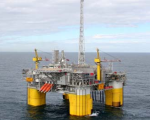Smaller companies will probably dominate development of Mexico’s shale gas deposits as Pemex focuses on shallow water and onshore projects, according to the independent director of one of the state owned company’s units.
Pemex, will probably focus on businesses with higher margins to maximize profits, leaving room for smaller companies in shale, Mario Gabriel Budebo, a director of Pemex Gas and Basic Petrochemicals, said to Bloomberg Mexico Economic summit.
“It’s not the large companies that have the agility and the cost structure to exploit shale gas,” said Budebo,a former deputy energy minister. “It’s an area for new players.”
Emilio Lozoya, Pemex’s CEO, on March 3 invited the world to explore for shale deposits in its recently opened energy sector.The crude production monopoly the company has held since 1938 ended on December 20,2013.Pemex aims to attract as much as $1 trillion in energy investment during the next decade to exploit the biggest proven oil reserves in Latin America after Venezuela and Brazil,he said.
A “big chunk” of investment in the sector may come from Asia, said Kent F. Moors, executive chair of the Global Energy Symposium.Finance Minister Luis Videgaray said in an interview that Mexico’s government is working with China to have the world’s second largest economy increase its investment across industries.
Videgaray helped shepherd the laws last year that opened the nation’s state-controlled oil industry to private drillers.
Victor Herrera, Latin American managing director at Standard & Poor’s, said in a December 20,2013 interview that pipeline and shale gas investment could come “very quickly.” Shale and natural gas are the “low-hanging fruit” of the energy reform and may be explored as soon as the second half of this year by foreign companies, according to Herrera.
Providing useful resources, articles and writings on crude oil, other petroleum products, energy and gas. By O'Niel Petroserve Nigeria Ltd, online.

 O'NielPetroserve is a leader in the of Nigerian Bonny Light Crude Oil (BLCO) sales market. As a privately held company, O'Neil Petroserve is committed to and is focused on delivering reliable services to all her clients.
O'NielPetroserve is a leader in the of Nigerian Bonny Light Crude Oil (BLCO) sales market. As a privately held company, O'Neil Petroserve is committed to and is focused on delivering reliable services to all her clients.  O'Neil Petroserve has an excellent track record of reliability in the supply of Bonny light crude oil, BLCO. We protect our buyers with 2% Performance Bond while we also expect protection from our customers with bank instrument from the world's top banks. We deliver on TTO, TTT, CIF and FOB basis.
O'Neil Petroserve has an excellent track record of reliability in the supply of Bonny light crude oil, BLCO. We protect our buyers with 2% Performance Bond while we also expect protection from our customers with bank instrument from the world's top banks. We deliver on TTO, TTT, CIF and FOB basis.
